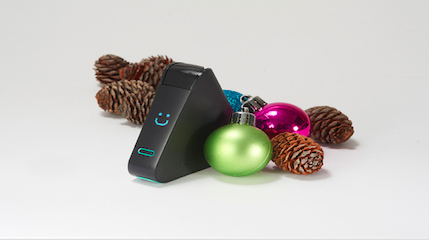Recently, allergen testing company 6SensorLabs received a $9.2 million investment. According to mobihealth, this round of financing was led by Foundry Group, followed by Upfront Ventures, SoftTech VC, SK Ventures, Lemnos Labs and Matt Rogers. This brings the company's total financing amount to $14 million. In addition, the company also announced the change of name to Nima.

In theory, 6SensorLabs can monitor a large number of food ingredients and allergens, but currently only gluten is detected. In the United States, gluten-free foods are popular because many people are allergic to gluten, and Shireen Yates, a founder of 6SensorLabs, has been afflicted with gluten allergies for many years.
How to spend money on financing?
Nima's CEO Shireen Yates said in a statement: "This round of financing allows Nima to continue to develop a variety of devices that can detect a variety of proteins and other substances and help as many people as possible to lead a healthy life. The Nima brand has been Widely accepted and synonymous with our company and products. We are ready to launch new products based on Nima, and Nima's success will be more helpful to our marketing."
Nima will use the funds to develop food detectors for peanuts and dairy products, which are expected to be launched in 2017. Nima's product gluten detector is still in user testing, and the company plans to bring it to market in the second half of this year.
Nima's first product has been pre-ordered since October 2015 and is a gluten detector. The instrument is priced at $199. The basic accessories include: Nima detector, three disposable small containers, a micro USB cable, and a carrying case. The user takes a small sample from the food, places it in a small container provided by Nima, and inserts the small container into the device. If the gluten content of the food sample exceeds two hundred thousandths, the device will show a crying face; if it is less than two hundred thousandths, a smile will be displayed. This entire inspection process takes only 2 minutes. In addition to testing food and feedback, the detector also sends data to the user's smartphone via Bluetooth, and the user can record and store the results of each meal.
Prior to this, UCLA's Aydogan Ozcan Lab tried to develop a similar device called iTube. It is connected to the iPhone camera by a spectrometer and has been able to recognize peanuts, almonds, eggs, gluten and hazelnuts, and then display their concentration. The device has not yet become a consumer product.
The key to food testing is fast and accurate
At present, the gluten detection equipment on the market will smash the food, and the devices such as cockroaches, test tubes, straws, test strips, etc. are used, and the detection is very laborious and the speed is not fast. The sensor developed by 6SensorLabs is an innovation based on existing protein detection technology, suitable for all kinds of foods, faster than traditional detection methods.
There are many other products in this area, but the accuracy is uneven, and almost no commitment is made to effectively help people prevent allergies. SCiO is a small spectrometer for connecting smartphones for food analysis, raising $2 million on the crowdfunding platform Indiegogo and raising about $5 million from Silicon Valley venture capital firm Khosla Ventures. The company said on the fundraising page that SCiO is not a medical device and that people should not rely on it to stop allergies. Another similar instrument, TellSpec, raised $380,000 on the crowdfunding platform Kickstarter, but the company's claimed accuracy was questioned.
Chongqing Huifan Technology Co., Ltd , https://www.hfsecuritytech.com